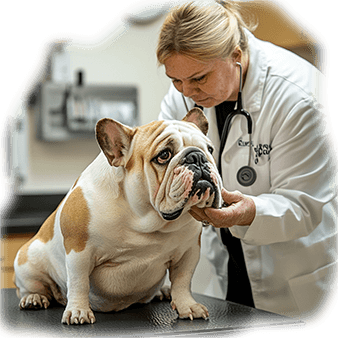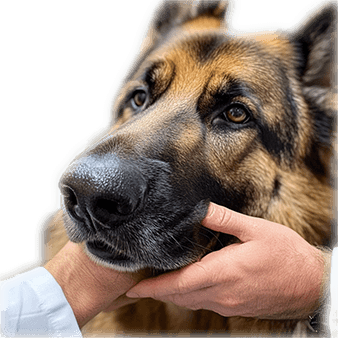Golden Retriever Health: Essential Care for a Happy, Healthy Dog
Golden Retrievers are known for their friendly and loyal personalities, making them one of the most popular dog breeds. However, like all breeds, Golden Retrievers are prone to certain health issues that require attention to ensure they live a long, happy life. In this post, we’ll cover some common health concerns, offer preventive care tips, and provide guidance on how to manage your Golden Retriever’s health.
Common Health Issues in Golden Retrievers
Golden Retrievers are generally healthy dogs, but they do have some predispositions to specific health problems due to their genetics. Here’s a closer look at some of the most common health concerns Golden Retrievers face and how to address them.
Hip Dysplasia
Hip dysplasia is a genetic condition that affects many large breeds, including Golden Retrievers. It occurs when the hip joint doesn’t fit properly into the hip socket, causing pain and mobility issues.
- Symptoms – Difficulty standing up, reluctance to run or jump, limping, stiffness, or a “bunny-hopping” gait.
- Prevention and Care – While hip dysplasia is genetic, you can manage its effects by keeping your Golden Retriever at a healthy weight, offering joint supplements (like glucosamine and chondroitin), and ensuring regular, low-impact exercise like swimming or walking.
- Treatment – Severe cases might require surgery, but physical therapy, anti-inflammatory medications, and weight management can also help alleviate symptoms.

Cancer
Golden Retrievers are unfortunately predisposed to several types of cancer, including hemangiosarcoma, lymphoma, and mast cell tumors.
- Symptoms – Lumps under the skin, lethargy, swelling, sudden weight loss, or changes in appetite.
- Prevention and Care – While cancer can’t always be prevented, regular vet check-ups and early detection are key. Feeding your Golden a well-balanced diet, avoiding known carcinogens, and regular exercise can contribute to overall well-being.
- Treatment – Depending on the type and stage of cancer, treatments can include surgery, chemotherapy, and radiation. Consult with your vet if you notice any unusual lumps or changes in your dog’s behavior.
Hypothyroidism
Hypothyroidism occurs when the thyroid gland doesn’t produce enough hormones, leading to a slower metabolism.
- Symptoms – Weight gain despite a normal diet, lethargy, thinning coat or hair loss, cold intolerance, or recurring skin infections.
- Prevention and Care – Regular vet visits can help identify this condition early. If diagnosed, hypothyroidism is typically managed with daily thyroid hormone replacement medications.
- Diet Tips – Ensure your Golden Retriever’s diet is well-balanced with high-quality protein and limited fillers, as maintaining a healthy weight is important for managing hypothyroidism.

Ear Infections
Golden Retrievers have floppy ears, which can trap moisture and bacteria, making them prone to ear infections.
- Symptoms – Shaking their head, scratching at their ears, a foul odor, or discharge from the ears.
- Prevention and Care – Regular ear cleanings can help prevent infections. Use a vet-recommended ear cleaning solution and gently clean the ears once a week, especially after swimming or baths.
- Treatment – If your dog shows signs of an ear infection, consult your vet for prescribed ear drops or medications.
Elbow Dysplasia
Elbow dysplasia is a condition in which the bones of the elbow joint develop abnormally, leading to pain and arthritis.
- Symptoms – Limping, stiffness, or difficulty bending the front legs.
- Prevention and Care – As with hip dysplasia, weight management and low-impact exercise are crucial. Providing joint supplements can also help support healthy joints.
- Treatment – Treatment may range from physical therapy and medications to surgery in severe cases.
Preventive Care Tips for Golden Retrievers
While some of these conditions are genetic, there are several ways to improve your Golden Retriever’s overall health and prevent complications down the road. Here’s how you can take proactive steps to ensure your Golden stays healthy.
- Regular Vet Visits – Schedule annual vet visits to catch any potential health problems early. As Golden Retrievers age, consider more frequent check-ups.
- Balanced Diet – Feed your Golden Retriever high-quality dog food rich in proteins (Amazon affiliate link), healthy fats, and essential nutrients. Avoid excessive carbohydrates, as these can contribute to obesity.
- Exercise – Golden Retrievers are active dogs that require regular physical activity. Aim for at least 1-2 hours of exercise daily to keep their muscles strong and their weight under control. Swimming is a great low-impact exercise for Goldens. Be sure to use a good quality pet harness (Amazon affiliate link) to prevent pulling and be able to better controll your dog.
- Joint Support – Since Golden Retrievers are prone to joint issues, consider adding glucosamine and chondroitin supplements to their diet to promote joint health. Provide them with a comfy bed (Amazon affiliate link) to better support their their limbs when lying down.
- Weight Management – Maintaining a healthy weight is key to avoiding strain on the joints and reducing the risk of other conditions like diabetes. Monitor their food intake and provide regular exercise.
- Grooming – Brush your Golden Retriever’s coat (Amazon affiliate link) regularly to prevent matting and keep their skin healthy. Pay special attention to their ears, especially after swimming, to prevent infections.
- Vaccinations and Parasite Prevention – Keep your dog up-to-date with vaccinations, flea, tick, and heartworm preventatives. Golden Retrievers are often outdoor-loving dogs, making parasite prevention important.

When to Contact the Vet
Early detection is crucial in managing your Golden Retriever’s health. If you notice any of the following symptoms, it’s time to contact your vet:
- Difficulty standing, limping, or signs of pain in the joints
- Sudden weight gain or loss
- Lethargy or lack of interest in usual activities
- Unexplained lumps or swelling
- Vomiting, diarrhea, or changes in appetite
- Recurring skin infections or ear problems
Regular vet visits and being proactive about health care can greatly improve the quality and longevity of your Golden Retriever’s life.

Conclusion
Golden Retrievers are one of the most beloved dog breeds, and with good reason. By staying vigilant about their health and taking preventive measures, you can ensure your Golden enjoys a long, happy, and active life. From regular exercise to a balanced diet, your Golden Retriever relies on you to keep them in peak condition. Be sure to consult with your vet if you ever have concerns, and stay informed about their breed-specific health risks.
Further reading: “Golden Retrievers For Dummies” (Amazon affiliate link) by Nona Bauer.
Affiliate Disclosure
This post may contain affiliate links, which means I earn from purchases made through links. Please see the privacy policy page for more details.






